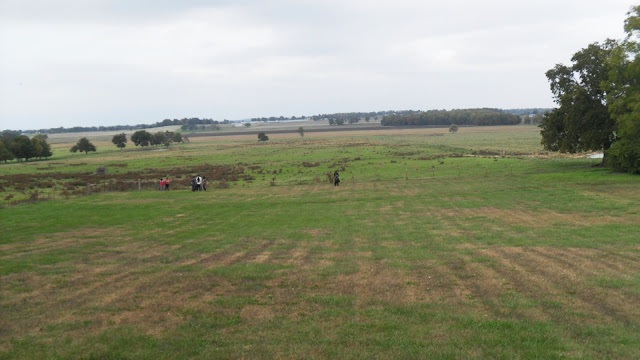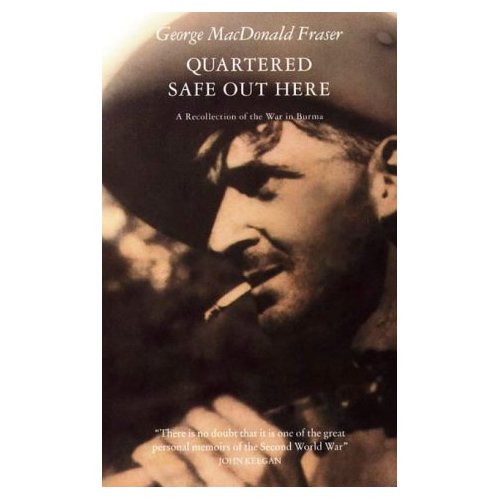REMEMBER THE MAINE!
"The day that Roosevelt can go into battle with [the Rough Riders] will likely be the happiest of his life." -- Chicago Tribune
Mark Gardner writes early in his thoroughly researched and lively account of Theodore Roosevelt and the Rough Riders, “This war with Spain was no surprise to Assistant Secretary of the Navy Theodore Roosevelt. For months, he had been doing everything in his power – not always with the direct knowledge or approval of the secretary – to make the navy ready for the great conflict he was certain was coming. And he also let it be known that he had no intention of observing the war from afar. Crazy as it sounded – and more than a few did think Roosevelt was crazy – this lighting-rod bureaucrat intended to go where the bullets were flying. He had been waiting for a war, any war, his entire adult life, and now that it was here, nothing was going to keep him from the battlefield.”
Gardner adds, “But Roosevelt’s war fever was actually due to America’s fever for war, or at least its long glorification of all things military.”
-----------
In 1898, the USS Maine was dispatched to Cuba to protect American interests and property due to reported riots by Cuban insurrectionists who were in rebellion against their Spanish rulers. On February 15, the ship exploded in the Havana harbor; two hundred and sixty-six sailors were killed.
A court of inquiry called by President William McKinley ruled that the explosion had been caused by an underwater mine, but did not place the blame on the Spaniards. It didn’t matter. The Hearst and Pulitzer newspapers did not hesitate to name the Spaniards as the perpetrators.
McKinley was the last U.S. president to serve during the Civil War. He knew war wasn’t all glory and adventure for he had experienced it firsthand. Reluctant to plunge his nation into another conflict, he hoped to avoid war by negotiating independence for the Cubans. When his efforts failed, Congress declared war on Spain. “Remember the Maine; and to Hell with Spain” became the rallying call for battle.
THE ROUGH RIDERS
Thirty-nine year old Theodore Roosevelt resigned his position as Assistant Secretary of the Navy and began using personal and political contacts to lobby Russell Alger, the Secretary of War, to allow him to raise a volunteer cavalry regiment. One of the personal contacts he called on was Colonel Leonard Wood, and through their combined efforts they were successful in getting the secretary’s consent.
While Wood was named commander of the regiment, Roosevelt received a commission as lt. colonel and was named second in command. Roosevelt was impressed by the fact that Wood had won a Medal of Honor during the campaign against Geronimo in the American southwest and he fervently desired to win one of his own.
As long as there is a war, Roosevelt wrote his friend, Senator Henry Cabot Lodge, “the only thing I want to do is command this regiment and get into all the fighting I can.”
Since cowboys were regarded as natural born horsemen, the two officers decided to recruit from among their ranks. And it worked. Cowboys from Texas, New Mexico, and Arizona readily volunteered to serve in the regiment. Although it was sometimes called the “cowboy regiment,” it also included “Oklahoma Indians, Ivy League football stars, and champion polo players,” -- and more than one fugitive from justice.
The official name of the unit was the First U.S. Volunteer Cavalry Regiment, but it quickly became known by the press and the public as the “Rough Riders,” or more specifically, “Roosevelt’s Rough Riders,” despite the fact that he was second in command.
But Colonel Wood didn’t mind that his subordinate was getting all the attention. And what could he do about it if he had minded? One newspaper observed “this only goes to show that wherever Roosevelt rides is the head of the parade.” It was not meant as a compliment.
The Rough Riders were “riders” in name only. In fact, due to a shortage of transports needed to ship the horses to the island all the cavalry units were dismounted. The only horses to make it to Cuba were pack animals and the horses belonging to the officers. As a result, the natural born horsemen of the American West fought the war on foot as infantrymen.
And it wasn’t long before Roosevelt did command the regiment. It happened when Colonel Wood was given the command of a brigade and Roosevelt received a promotion to full colonel and command of the Rough Riders.
KETTLE AND SAN JUAN HILLS
"I put myself in the way of things happening, and they happened." – Theodore Roosevelt
The war’s final decisive battles were fought on two hills located in the San Juan Heights: Kettle and San Juan. Roosevelt and his Rough Riders were in the thick of those battles and were instrumental in the victorious outcome. That is not to say that they didn’t have a lot of support from other cavalry units. But as Gardner writes, “It was no surprise that the news reports gave the Rough Riders much of the glory, even though the First and Tenth Cavalries fought equally as hard.”
 |
| Col. Roosevelt and Rough Riders pose for camera atop San Juan Hill |
The Tenth Cavalry, it should be noted, was one of two cavalry regiments made up of African American troopers. They were the so-called “Buffalo Soldiers” that fought in the Indian wars in the years following the Civil War.
"There can be no better soldiers in the world, and yet I used to doubt whether the negro could fight with as much dash as the white man." – Rough Rider
MEDAL OF HONOR?
"I don’t ask this as a favor, I ask it as a right….I am entitled to the Medal of Honor, and I want it." – Theodore Roosevelt, letter to Senator Henry Cabot Lodge
Theodore Roosevelt was courageous and bold to the point of foolhardiness. Throughout the campaign he exposed himself to enemy fire. Since he was often mounted on horseback he represented an inviting target for enemy bullets. But by some miracle he didn’t receive a scratch even though men who were charging into enemy fire near him were killed or wounded.
In his desire to achieve glory he reminds one of another soldier, George Armstrong Custer. They differed, however, in one important respect. Custer was primarily interested in his own welfare, while Roosevelt never failed to look out for the well-being of his men. His men were fiercely loyal to him and he returned that loyalty by looking out for their interests.
"Our general is poor; he is too unwieldy to get to the front. I commanded my regiment, I think I may say, with honor. We lost a quarter of our men." – Theodore Roosevelt, letter to Senator Henry Cabot Lodge
Roosevelt’s commanders recommended him for a Medal of Honor, but to no avail. Gardner speculates that Roosevelt’s comments to the press about the conduct of the war and a critical letter that was published by the Associated Press so infuriated Secretary Alger that he personally blocked the award. And though the war was a logistical nightmare and in some respects a comedy of errors, his public criticisms did constitute insubordination. He was fortunate that a president like Harry Truman was not the commander-in-chief or he might have experienced the same fate as General Douglas MacArthur during the Korean War.
Roosevelt and the Rough Riders had become the darlings of the press and the public. And Regulars were justified in resenting the situation, for believing that the Rough Riders – and their commander – had received media attention all out of proportion to their actual contribution to the war effort. This also became a factor militating against Roosevelt and his desire to receive a Medal of Honor.
In fact, the tempest in a teapot that their commander had initiated worked against not only him, but also his regiment. When the final names of the war’s Medal of Honor recipients were named – twenty-five in all – not only was Roosevelt not one of them, no member of the Rough Riders was named.
Two Rough Riders did eventually receive a Medal of Honor at a later date. The first was Captain James Robb Church, who had served as assistant surgeon under Roosevelt. The medal was presented to Church in 1906 by his old commander, and now President of the United States, Theodore Roosevelt. It must have been a bittersweet moment for the president.
In 1996, Congress passed a bill that waived time restrictions for awarding the Medal of Honor. After some debate, Congress voted to award Theodore Roosevelt the medal. On January 16, 2001 President Bill Clinton presented the medal to Roosevelt’s great-grandson, Tweed Roosevelt. Thus, Theodore Roosevelt became the second Rough Rider, and the only president, to win a Medal of Honor.
As Roosevelt would have said: “Bully! Dee-lighted!”
 |
| The Colonel |
 |
| The Author |















